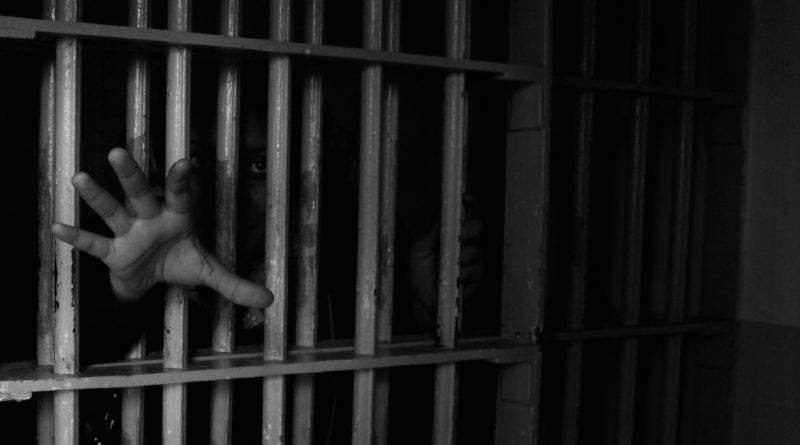In Kyrgyzstan, a citizen has been illegally imprisoned for several years
Human rights activists of Kyrgyzstan are trying to secure the release of a citizen who is illegally serving a sentence in one of the republic’s colonies.
As ACCA was informed in the Coalition against Torture, the citizen K.D. was convicted of a crime and sentenced to 13 years in prison by a verdict of the City court of Osh in February 2016.
According to the verdict, the court determined the beginning of the prison term since February 9, 2011. On the basis of the article 61 of the Criminal Procedure Code, the court set off the period of detention in custody and applied an amnesty, due to which the unserved sentence was reduced by a quarter.
This sentence was not appealed by the prosecutor and entered into legal force. In fact, K.D. was supposed to be released no later than May 2018. However, to date, the institutions of the State Penitentiary Service continue to illegally hold K.D., who has served the sentence indicated by the court.
“The administration of institution No.8 of the State Penitentiary Service believes that the court issued an incorrect verdict because KD was wanted and detained in 2015, and that the amnesty is not applicable to wanted persons. Although during the search, K.D. served his sentence in a settlement of Osh city,” the Coalition explains.
At the same time, according to human rights activists, at the request of the administration of institution No.8 of the State Penitentiary Service, the City court of Osh responded to the head of the institution, “The operative part of the sentence specifies the term for calculating the sentence and applies the Law “On Amnesty” dated January 28, 2014. The sentence entered into force and was not canceled.”
Despite this, the State Penitentiary Service continues to illegally hold K.D. and moreover, transferred him to institution No.43 of the city of Kyzyl-Kiya.
“The position of the employees of the State Penitentiary Service is not clear for us. Do they have the powers of a court to discuss about the legality of applying amnesty and, on this basis, illegally hold a person?” the lawyers of the Coalition against Torture ask.
Human rights activists appealed to the Prosecutor General’s office with a request to pay attention to the crime committed by officers of the State Penitentiary Service because of a deliberate non-enforcement of the court decision (Article 167 of the Code on Misconduct of the Kyrgyz Republic) and illegal imprisonment, as well as illegal prolonged imprisonment (Article 172, part 3 of the Criminal Code of the Kyrgyz Republic).
The Coalition believes that the Prosecutor’s office for supervision of compliance with laws in the institutions of the penal system in Chui region did not have a proper reaction to the obvious facts of the violation due to the lack of constant monitoring of the execution of sentences.
Recently it became known that having received a response from the administration of colony No.8 about the reasons for K.D.’s illegal deprivation of liberty on March 4, 2020, a lawyer of the Coalition against Torture appealed to the Moscowskiy District court to recognize the illegality of imprisonment and the immediate release of K.D.
Turning to the court with such an unusual requirement, the lawyer drew the court’s attention to the guarantees of the Constitution, according to which only the court administers justice and everyone, who was in prison, has the right to verify the legality of this situation.
On March 5, 2020, having accepted the application for production, the judge of the Moscowskiy District court, Zh. Abdieva, appointed a consideration of the lawyer’s application for the immediate release of K.D. on March 11. However, he was not invited to the hearing, although both the prosecutor and the colony representative were at the hearing.
On March 12, 2020, the judge Zh. Abdieva refused to satisfy the application, since she considered that the application was not jurisdictional to the court.
The court explained its decision by saying, “If the Prosecutor’s office revealed violations of the criminal executive law, expressed in the illegal custody of K.D. in the penal colony, these circumstances may serve as the basis for taking prosecutorial response measures.”
At the trial, it was also revealed that K.D. is not on the lists of colony No.8, he was transferred to another institution. This was stated by the representative of the colony R. Vahabov.
Ibraimov, the prosecutor for supervision of compliance with laws in the bodies and institutions of the State Penitentiary Service, also asked the court to refuse the application.
“The reaction of the judge, the prosecutor and the administration of the institution testifies that it is impossible to achieve a legal check, and even release from illegal detention,” human rights activists say.
In their opinion, the court evades its function – to administer justice in the name of the Kyrgyz Republic.
The Coalition against Torture notes that the decision of the judge Zh. Abdieva will be challenged in the second instance.
Recently it became known that the Prosecutor’s office accepted the statement of human rights defenders. However, an investigation has not yet begun. In addition, the Coalition against Torture reported that the Prosecutor General’s office intends to appeal the initial verdict of the City court of Osh dated February 17, 2016, which determined the sentence for K.D.
“In other words, after our report concerning the crime and K.D.’s unlawful deprivation of liberty, the Prosecutor’s office suddenly decided, after 3 years, to challenge the verdict of the court, according to which K.D. was found guilty and, in fact, has already served his sentence. This is such a sly way of establishing the rule of law in this particular case,” the Coalition’s lawyers are outraged.
It is worth noting that in 2019 it turned out that in correctional colony No.2, a woman was serving her sentence without a final verdict. The accused has been in custody for 11 years. She complained to the Ombudsman that the court was not reviewing her case after the new criminal law came into force. During the trial, it turned out that the criminal case of E.K. disappeared, but neither the court nor the Prosecutor’s office could explain who lost it and when.




